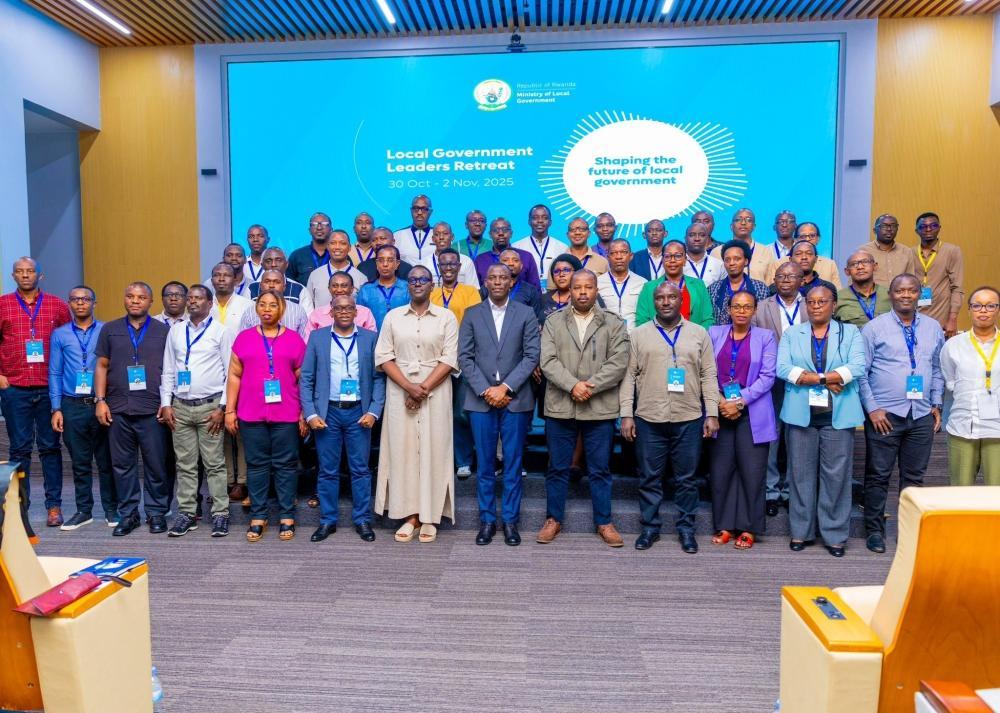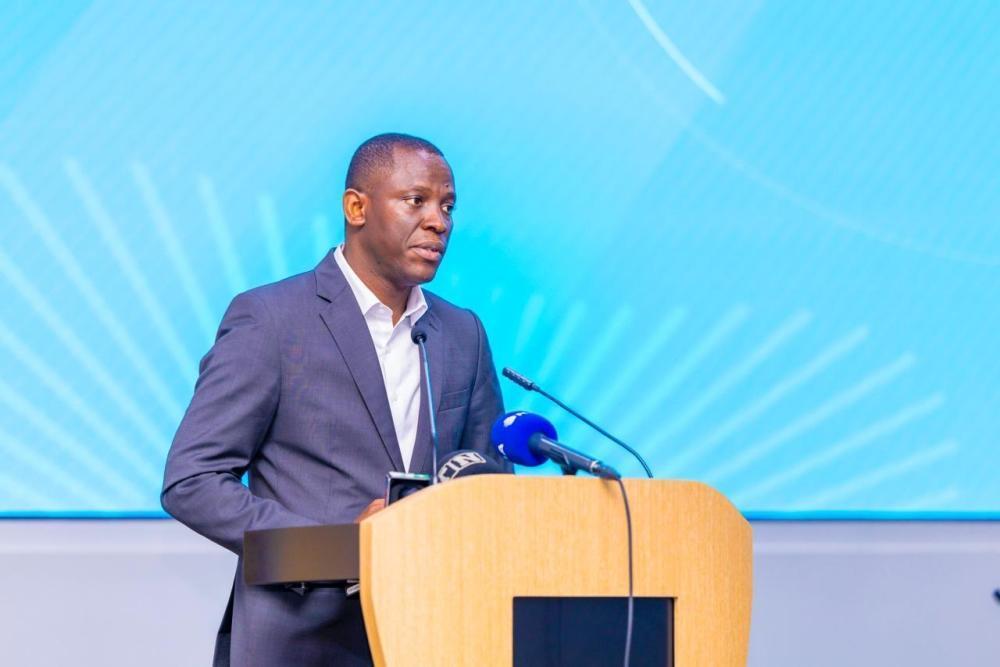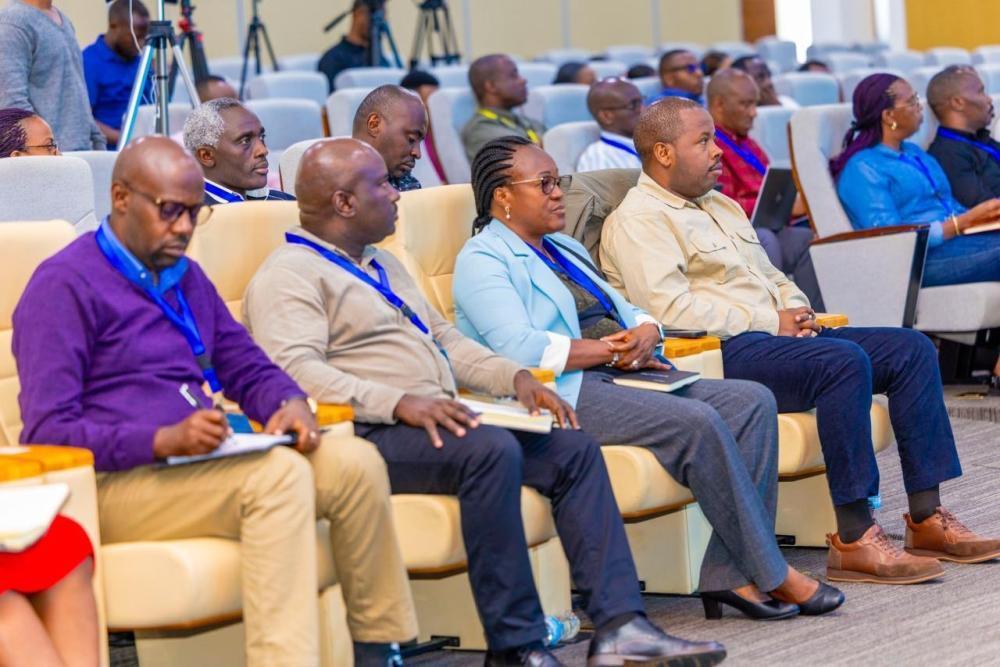Africa-Press – Rwanda. Local government leaders have renewed their commitment to improving citizen-centered service delivery, following a four-day retreat that reflected on Rwanda’s 25 years of decentralisation and charted the future of local governance.
The retreat, held at Gako Military Academy in Bugesera District from October 31 to November 2, brought together provincial governors, the mayor of the City of Kigali and district mayors under the theme “Shaping the Future of Local Governments.” The discussions focused on strengthening decentralised entities to ensure responsive, accountable, and inclusive service delivery.
Following the 1994 Genocide against the Tutsi, which claimed more than one million lives and left the country in ruins, the new leadership adopted decentralization as a cornerstone of governance reform.
Minister of Local Government Dominique Habimana presides over a four-day retreat for local governance leaders at Gako Military Academy in Bugesera District on November 2. Photo courtesy.
The policy aimed to bring services closer to citizens, rebuild trust, and promote inclusive participation in national development.
Officially launched in 2000, the decentralisation policy has, over years, driven progress. According to a report by the Ministry of Local Government published in June 2024, citizen participation in local governance now exceeds 80 per cent, gender parity in decision-making has improved substantially, and local economic development initiatives created 942,324 jobs between 2017 and 2021. The policy has also enhanced leadership accountability and transparency across local institutions.
Speaking at the closing of the retreat, the Minister of Local Government, Dominique Habimana, commended local leaders for their contribution to these achievements and urged them to deepen their commitment to serving citizens effectively.
“Before 1994, governance was fully centralized, with all decisions taken at the national level. After the Genocide against the Tutsi, the new leadership decided to adopt citizen-centered governance,” the Minster said.
“For the first time, citizens were able to elect their leaders and engage with them directly on development matters. That decision gave rise to the empowered Rwandan citizen we see today, actively involved in planning and shaping their own development.”
He highlighted the tangible impact of decentralization on national progress.
“We have seen concrete results in poverty reduction, from more than 77 per cent before the Genocide to 24.7 per cent in 2024. These achievements stem from joint efforts, with local authorities playing a central role in delivering to citizens,” Habimana said.
The Minister reaffirmed the government’s continued support for local authorities, emphasizing collaboration across all administrative levels under the leadership of President Paul Kagame.
“You are not alone at the local level. We are together in this journey working towards one clear and achievable vision,” he said. “This retreat has provided time to evaluate our performance and recommit to delivering better results for the people.”
He also referenced the recently launched 12th Rwanda Governance Scorecard the Rwanda Governance Board (RGB), which identified areas requiring improvement.
“We had ample time to review what the governance scorecard reveals across various pillars, including service delivery, agriculture, land management, and settlement planning. We are determined to enhance performance in all these areas,” Minister Habimana added.
Local government leaders follow proceedings during the closing session of the retreat at Gako Military Academy.
Southern Province Governor, Alice Kayitesi, said the retreat offered an opportunity to reflect on citizens’ well-being and renew dedication to improved coordination and engagement.
“We need to strengthen citizen participation by ensuring they understand how services benefit them and their role in achieving better delivery. We believe that with renewed coordination, the next governance assessments will show greater progress,” she said.
Antoine Mutsinzi, the District Executive Administrator of Kicukiro, echoed similar sentiments, stressing the need to enhance service delivery and boost local revenue collection.
“We assessed our performance and committed to advancing efforts to deliver quality services, especially in health care, aligned with citizens’ expectations,” he said.
For More News And Analysis About Rwanda Follow Africa-Press








